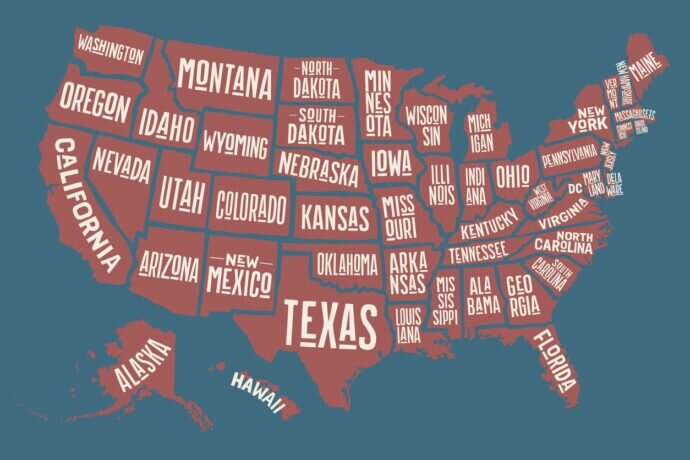2020 has brought a pretty turbulent year. The year-long COVID pandemic and the hotly contested Presidential race book ended a year that most of us would prefer to forget.
With 2021 just around the corner, we decided to look at what changes to 529 savings plans were enacted in 2020, and what we can expect in 2021.
No Federal 529 Plan Changes
Luckily, all this turbulence did not impact or change the Federal requirements of saving for your child’s college with 529 plans. The last major change to Federal 529 Plan requirements and limitations happened in 2019 with the SECURE Act.
Under the SECURE Act, approved in December 2019, up to $10,000 of 529 funds can now be used to repay student loans. The law also allows 529 funds to be used for apprenticeships.
2020 saw no major changes enacted and 2021 does not appear to have any either… yet.
State 529 Plan Changes
No upcoming 2021 changes to state-sponsored 529 plans have been announced yet. However, some states did make a few changes throughout 2020 – and all of them were for the better.
Illinois
Starting 2021, babies born in Illinois will automatically receive a college savings fund. An automatic $50 deposit will be made into a college savings account which families must claim for their child by their 10th birthday.
Georgia
In 2020 Georgia doubled their tax deductions when savings are put into a child’s 529 savings plan. The deductions for single filers went from $2,000 to $4,000 per beneficiary, while the deductions for married/joint filers doubled from $4,000 to $8,000. If you are taking advantage of Georgia’s Path2College 529 plan, then this means more money in your pocket through these tax deductions.
Colorado
Colorado‘s Working Families College Savings Act, originally enacted in 2019, has been extended for ten additional years by that state’s legislature. The act provides a way for Colorado employers to boost their employees’ CollegeInvest 529 savings accounts with tax credits. The original legislation ensured the program would continue until 2022, but it will now be effective through 2032.
The plan offers a Colorado tax credit for employers who make contributions to CollegeInvest savings plans owned by their employees. The available tax credit is 20% of the amount contributed to a CollegeInvest 529 account, up to $2,500 per employee. Within that scope, employers will have the flexibility to design specific benefit strategies that best suit their business needs, and the needs of their employees.
New Jersey
New Jersey Governor Phil Murphy proposed in August 2020 a $1,000 “baby bond” nest egg for children from lower income families in an effort to close the wealth gap in the state.
While not specific to 529 plans, this proposal would provide $1,000 in bonds to each child born in 2021 into families earning less than about $131,000 per year or 500% of the federal poverty level. This legislation is expected to help about three out of every four children born in the state.
Pennsylvania
Pennsylvania State Treasurer Joe Torsella lowered the minimum contribution for the PA 529 College and Career Savings Program (PA 529) to $10. Previously the minimum contribution amount for the Guaranteed Savings Plan (GSP) was $15, and the Investment Plan’s (IP) was $25.
In February 2020, PA also gave families the chance to receive a $100 starter gift in a Pennsylvania 529 account for every child born or adopted in the state. A number of other U.S. states have recently enacted similar (albeit minor) programs that aim to cut down on soaring student debt.
Florida
Florida Governor Ron DeSantis announced in January 2020 that the State of Florida will be lowering Florida Prepaid plan prices in order to make college more affordable. The reduction is expected to save Floridians $1.3 billion and will benefit 224,000 current Florida Prepaid customers.
More than 108,000 plans are eligible to receive an average cash refund of $4,700. Plan holders also have the option to transfer their refund to a Florida Prepaid savings account for other college expenses like books, supplies and housing. Desantis says pricing for the 2020 plan year will have the lowest rates in five years, starting at $44 a month for a newborn.
Lowered Admin Fees
Due to the pandemic, many states also lowered their 529 plan administration fees. These fees were cut in order to help keep more money in their constituents pockets during the difficult times of the pandemic. The states that lowered fees were:
- Nebraska NEST (fees reduced by 68%)
- Indiana (fees reduced by 20%)
- North Dakota (reduced from 0.40%-0.41% to 0.35%-0.36%)
- Oklahoma (reduced from 0.3% to 0.25%)
- Missouri (fees reduced by over 26%)
- California ScholarShare 529
- Illinois Bright Start (reduced from 0.15% to 0.14%)
